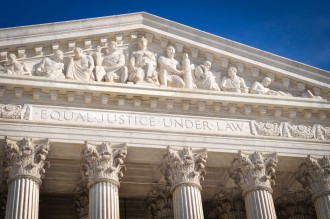
November 6, 2015
Federal Circuit Clarity on Key IPR Issues May Be on the Way
We are entering an interesting phase in the development of inter partes review proceedings as more and more of the contours of these proceedings are being heard by the Federal Circuit. To date, the Federal Circuit has made substantial use of Rule 36, affirming the Board without opinion in 24 of the first 29 IPR appeals it has heard, but more substantive opinions are sure to be on the way.
On November 2nd, oral argument was heard in the case of Shaw Indus. Grp. v. Automated Creel Sys. In that case, Petitioner challenged the Board’s practice of denying grounds contained in IPR petitions on redundancy grounds. In a high percentage of its decisions to institute an IPR trial, the Board will grant trial relative to one or more challenge grounds, but deny others it deems to be horizontally or vertically redundant.
Then, on November 3rd, oral argument was heard in the cases of Synopsis Inc. v. Lee and Synopsys Inc. v. Mentor Graphics Corp. In that case, Petitioner challenged the Board’s practice of only instituting trial on those claims that meet the “reasonable likelihood” standard, instead of granting trial on the entire petition when at least one claim meets that threshold.
Also interesting relative to these cases is the interplay between these issues, which ostensibly are part-and-parcel with the institution decision and the Court’s recent pronouncement, in Achates v. Apple. In that case, the Federal Circuit held that 35 USC 314(d) (“[t]he determination by the Director whether to institute IPR under this section shall be final and nonappealable.”) prevents its review of the 315(b) time bar. Some commentators have suggested that the rationale of that decision extends to any issue decided in the decision to institute. If that view is correct, this would likely preclude the CAFC from reviewing the issues raised int he Synopsis and Shaw Industries cases.
In sum, the issues heard by the Federal Circuit this week could substantially change the way IPR practice is handled at the Board….or, the CAFC might punt this issues, holding that is not able to review the issues because they are inherently a part of the institution decision.



































